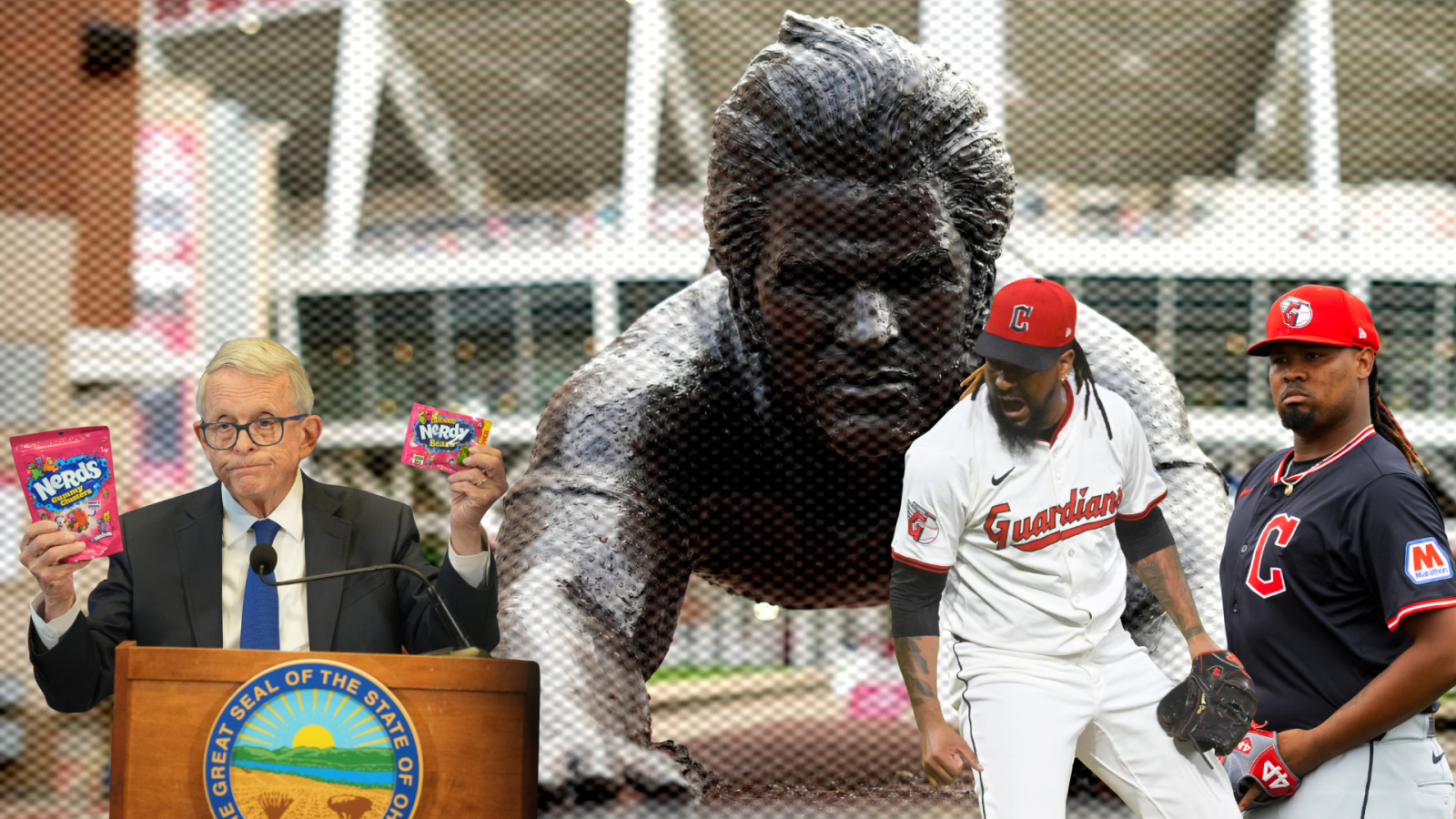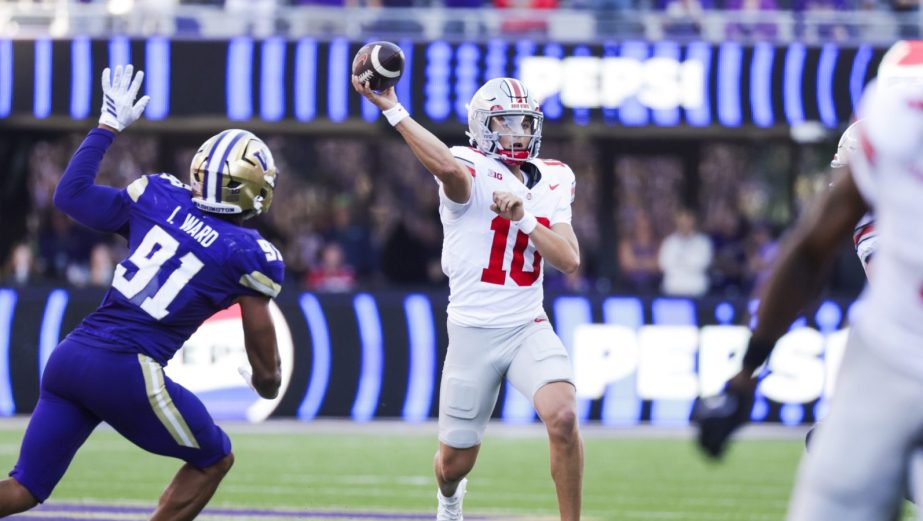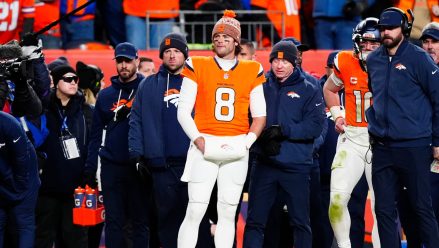Pete Rose’s bronze embodiment had been perpetually sliding headfirst across Crosley Terrace at Great American Ball Park in Cincinnati for a year and a half when Mike DeWine was elected governor of Ohio in 2018.
DeWine became the 70th leader of a state where a sizable portion of the population still adored the former Cincinnati Reds superstar who’d been banned from baseball for betting on the game as a player and manager. DeWine might have harbored misgivings about gambling, but he signed a bill legalizing sports betting in 2021, after taking in nearly $1 million in campaign contributions from gambling interests before his re-election in 2022.
Three years later, and more conveniently a few months after Cleveland Guardians pitchers Emmanuel Clase and Luis L. Ortiz were investigated and subsequently federally charged in an alleged gambling conspiracy, DeWine has apparently surveyed the field again, and wants a do-over, telling the Associated Press that he would not sign a sports betting bill if he had another chance. He also said that he’d like to repeal it, but he knows the votes aren’t there.
By all means, DeWine should be given the leeway to, over time, develop a different opinion on a subject.
But this feels like grandstanding. And buffing up the final chapters of a legacy.
Public servants should react to real-time problems. But this feels like the mayor showing up at the washed-out bridge and proclaiming that he always knew that river was trouble.
Be part of the solution to an obvious problem
Unfortunately, some of the concerns that gambling opponents raised before legalization in Ohio have manifested themselves, such as high-profile scandals, which have been weirdly common in the state over the years. That means you, too, Art Schlichter. The Reds were even part of the Black Sox scandal.
But DeWine was certainly privy to these arguments before he put campaign contributions in the bank and, eventually, pen to paper, making sports betting a new revenue source for Ohio, particularly for education.
Since sports betting was legalized in 2023, Ohio has raked in $449 million in taxes from mobile/online and retail sports betting, $395 million of which came after DeWine pushed to have the tax rate doubled to 20% with the start of fiscal year 2023-24.
That DeWine has contributed to the dialogue between state regulators and pro sports leagues — specifically MLB after the Guardians revelations — is laudible.
But declaring his regrets, with two years left as governor and, most likely, in a political career, feels a little too convenient. Having choked up the Ohio tax rate on operators to 20% — he sought and failed on 40% — he understands the cash the enterprise generates and how tethered to it states and pro sports leagues have become.
DeWine rightly acted when reports of athlete abuse came in from Ohio colleges in 2023. But even as DeWine called for the ban of prop bets after the Guardians scandal, he certainly knew it was never going to happen. Everyone knew. So sportsbooks and MLB got together and limited these particular microbets to $200, and MLB Commissioner Rob Manfred name-dropped DeWine for his concern. Everyone got to say they contributed.
And now for DeWine, having tagged up on sports betting, he can publicly dig in to quash any iCasino bills he would have likely vetoed anyway. He can lament sports betting at the church social and talk up that $449 million at the chamber of commerce on his way out of Columbus.
Ohio can’t cash out of sports betting
The argument will be made at length that the legal market DeWine brought into Ohio was part of a broad gambling integrity matrix that unearthed the Guardians scandal. That argument is correct. In the post-PASPA environment, with the benefit of technology that identifies irregular betting patterns within the regulated space, nobody had to wait for Sports Illustrated to find the bookie and the notebook that finally nabbed Rose.
DeWine should continue to push for reforms he feels are necessary with the tools available. Among them is the Ohio Casino Control Commission, which has become one of the most aggressive regulatory bodies in a nation where 41 jurisdictions have legalized sports betting.
And if DeWine actually thinks he got this wrong, he should dive in to improve it. Headfirst.







